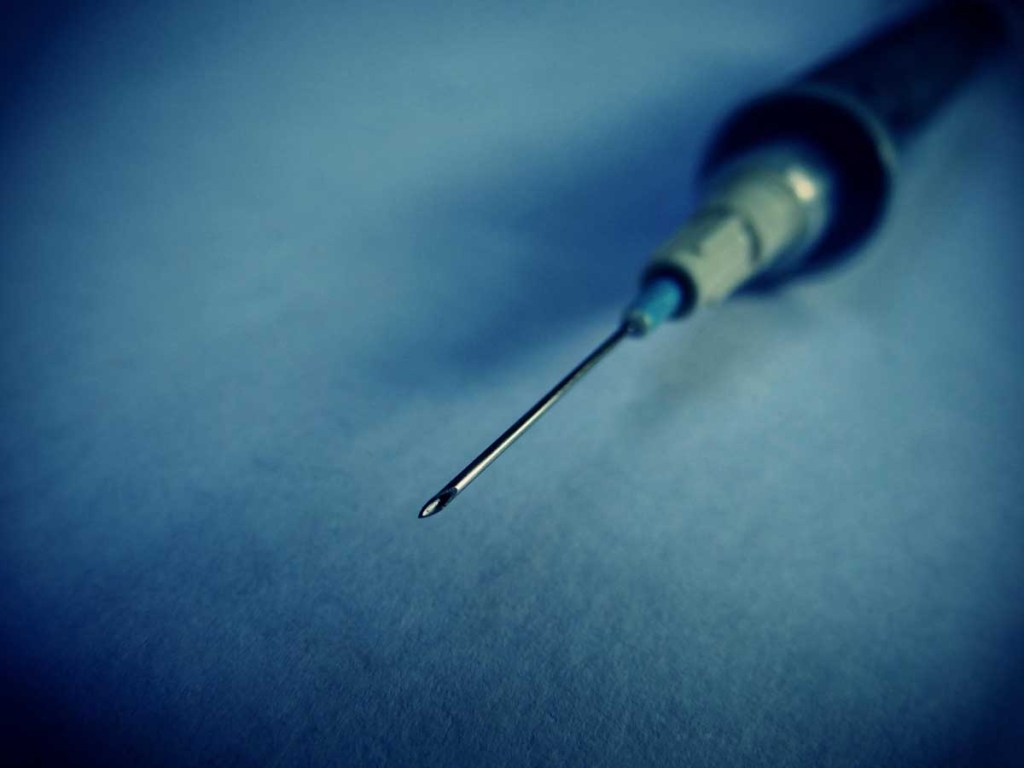Advocates want better monitoring of heroin’s child victims
Published 6:40 pm Wednesday, December 23, 2015

- FILE IMAGE
HARRISBURG – The state is still struggling to count the number of people who fall prey to heroin and opioid addictions, but some advocates are most concerned about victims who cannot speak for themselves – babies born with addictions.
State officials report a spike in the number of babies born with addictions, and doctors and advocates say the extent of the problem is still undetermined.
The Center for Children’s Justice, in Berks County, is pressing the state Congressional delegation to lobby for better oversight of cases in which newborns are exposed to illegal drugs.
“It’s almost like we are losing a generation of children, and no one is talking about it,” said Cathleen Palm, the center’s founder.
The center is calling for better sharing of information between hospitals and child protective agencies, and a focus on how state agencies share information with each other.
Pennsylvania health officials are still trying to get their arms around the number of people killed by overdoses of heroin and prescription painkillers each year.
Advocates worry they may be even further from understanding how the drug addiction affects children.
More than eight babies were born with drugs in their system every day in Pennsylvania in 2013-14, according to reports submitted by hospitals to the Department of Health.
That’s a 20 percent increase from four years earlier.
The 2013-14 data – the most recent available – don’t reflect the current situation, doctors and child advocates say, noting the heroin crisis has dramatically deepened.
Estimates by the Pennsylvania Coroners Association show overdose deaths jumped 20 percent just in 2014, when the state logged 2,489 drug deaths.
Nationally overdose deaths hit record numbers that year – more than 47,000, according to the U.S. Centers for Disease Control and Prevention.
Dr. Pat Bruno, a pediatrician who specializes in recognizing child abuse, said babies born with drug dependency because of a mother’s addiction go through horrifying withdrawal.
“It’s a horrible thing to witness,” said Bruno, who works at the Children’s Advocacy Center, operated by the Janet Weis Children’s Hospital of Geisinger Medical Center.
“The babies vomit, won’t eat. They lose weight,” he said. They also may have bouts of seizures that can come and go for months.
Trauma also affects babies whose mothers used methadone to manage addictions while pregnant.
Pregnant women with drug addictions are given methadone because they are more likely to seek prenatal care if they are seeking treatment for drug use. Alternately, a mother who tries to quit cold-turkey can put herself, and her child, in serous danger during withdrawal.
State Sen. John Wozniak, D-Cambria County, said what happens once a newborn’s withdrawal ends may be almost as bad if the baby is sent home to families with drug addiction.
Newborns aren’t the only children confronting the effects of drugs.
Last year, 5,800 children placed in foster care were removed from homes in which drug use was considered a problem, said Kathleen Gillis, spokeswoman for the state Department of Human Services.
That’s more foster kids displaced by drugs than in any of the last five years, state data show.
Social workers identified drug use as a factor in about 1 in 7 cases of child abuse, she added.
Bruno, who added his name to the letter to the Congressional delegation, said he thinks the situation is getting worse.
In addition, an analysis of five years of child abuse reports by the Center for Children’s Justice found 19 cases in Pennsylvania in which children were killed or seriously sickened because they accidentally ingested or were given illegal drugs.
They include the case of a 3-year-old boy in Crawford County who nearly died in 2012 when he took methadone that his father had obtained illegally, according to the center’s report. The child and his father were not identified by the reports.
The center’s review also revealed cases of children who were smothered by parents who fell asleep during drug use.
The center also pointed to a 2010 case in Northumberland County in which a baby died from overheating, having been left in a tiny room with a heater while its mother went to a methadone clinic.
Sen. Gene Yaw, R-Lycoming County, said state officials are still trying to understand the extent of the drug crisis.
“We’re peeling away the layers of an onion,” said Yaw, who is chairman of the board of directors of Center for Rural Pennsylvania, which has released two reports examining the heroin crisis.
An early focus, he noted, was on getting more accurate counts of overdose deaths and expanding access to naloxone, the overdose antidote.
Wozniak, also a member of the center’s board, said better access to treatment can help in the fight against addiction.
In many cases, courts won’t order that an addict get treatment until he or she is repeatedly convicted.
Wozniak said getting treatment after a first offense can stop someone from committing new crimes and help them before drugs destroy their lives and those of people around them.
John Finnerty covers the Pennsylvania Statehouse for CNHI’s newspapers and websites. Reach him at jfinnerty@cnhi.com.





